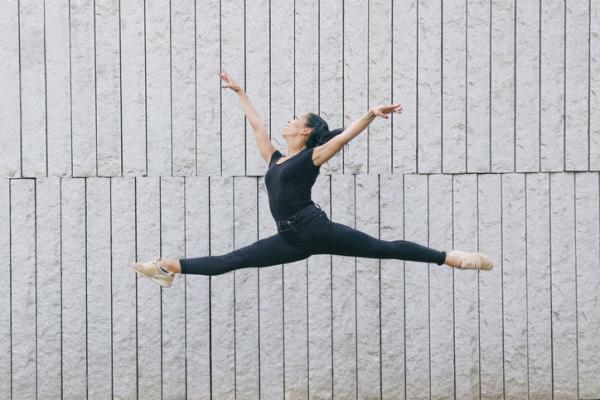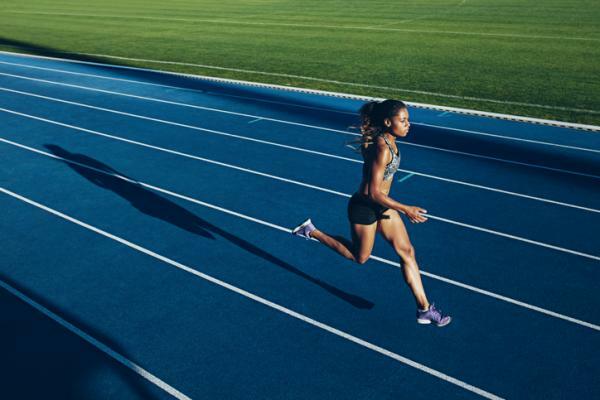
In Western culture, traditionally, a separation has been made between the body and the mind. Due to this, intelligence related to the body has not been considered as such until a few years ago, with language and mathematics predominant as a measure of the intellect. Kinesthetic bodily intelligence begins to be increasingly valued and investigated, so if you want to know more about it, keep reading this article from Psychology-Online: Kinesthetic body intelligence: what it is, characteristics and how to improve it.
Index
- What is kinesthetic bodily intelligence
- Kinesthetic body intelligence: characteristics
- Kinesthetic Body Intelligence: Examples
- Kinesthetic Body Intelligence: Activities
- Kinesthetic body intelligence test
What is kinesthetic bodily intelligence.
Kinesthetic bodily intelligence is part of the Theory of multiple intelligences from the psychologist Howard Gardner. Gardner identified a series of capacities that went beyond the concept of academic intellect and establishes that they are present in all people, although to a greater or lesser degree of development. These skills are essential for adaptation to the environment and the environment.
Kinesthetic body intelligence: definition
What is kinesthetic bodily intelligence? Kinesthetic bodily intelligence refers to the set of cognitive abilities that facilitate the connection and coordination of the mind with the body, allowing control and precision over it. It is the capacity that is related to the use of one's own body for action, for the achievement of objectives, as well as for the manipulation and transformation of elements.
The kinesthetic bodily intelligence is in charge of managing the strength, coordination, balance, speed, flexibility, etc. Likewise, body expression and the perception of measurements and volumes depend on it, as well as allowing the learning and automation of skills. Therefore, the corporal intelligence corresponds to the control of the movements of the body, the coordination of these and the handling of objects by means of the hands and work instruments. Both fine and gross motor skills are included. The kinesthetic body capacity is located in the brain in the cerebellum, basal ganglia, and motor cortex mostly.

Kinesthetic bodily intelligence: characteristics.
The main characteristics of people with a great development of kinesthetic bodily intelligence are the following:
- They usually explore the environment and the environment through the sense of touch and movement.
- Tendency to do body use for the expression of emotions and feelings. Control of non-body language.
- Quick and easy learning of new physical skills.
- Sense of rhythm and coordination. Especially for hand-eye coordination.
- Dexterity in both fine and gross motor skills.
- They learn more easily through participation, interaction, and direct experience. Just as they prefer concrete learning experiences to abstract ones.
- They have sensitivity towards physical spaces and the environment.
- Interest to try new physical activities that you have not done before. Physically restless people.
- Attraction for sport, dance and manual activities such as painting, sewing, etc.
- They make use of movement to obtain information about themselves and their environment.
- Elevated internal body awareness and body care through healthy habits.
- Ability to handle and manipulate various instruments and objects.
- Safety, precision and agility in their movements.
Kinesthetic Body Intelligence: Professions
Due to the characteristics of kinesthetic bodily intelligence, the trades and activities to which people with this capacity are usually attracted are crafts, sports, dance, surgery, mechanics, acting, gardening, and so on.
Kinesthetic bodily intelligence: examples.
There are various people who have historically stood out or stand out for their kinesthetic bodily capacity. Some of the characters possessing bodily intelligence They are:
- Nadia Comaneci: she is a former gymnast of Romanian origin. Throughout her career, she achieved nine Olympic medals, four in the world championship and twelve in European competition. She is the first rhythmic gymnastic gymnast to achieve a perfect score of ten points in an Olympic competition at the age of 14.
- Gian Lorenzo Bernini: she was an Italian sculptor, painter and architect. He was the creator of the Baroque style in sculpture, as well as being considered the most talented sculptor of his generation. Bernini possessed an extraordinary ability to capture psychological and emotional states and translate them into the bodies of his sculptures.
- Isaac Hernández: He is a Mexican ballet dancer, currently recognized as the best dancer in the world by the highest award in his discipline. At the age of twelve she won gold in the most important competition for young ballet dancers in New York, so five of the top dance schools offered her scholarships to study at they.

Kinesthetic bodily intelligence: activities.
In the traditional educational system there is little appreciation and recognition of this ability; Little time is devoted to it in the educational plan, the teaching methodology does not incorporate it and, furthermore, little social value is given to the professions related to it.
However, the development of kinesthetic body capacity has multiple benefits for people, such as enhancing the brain connectivity and cognitive ability, develop body awareness and control or optimize one's own processes Body. But how do you develop kinesthetic bodily intelligence? Here we show you a series of activities to develop kinesthetic bodily intelligence in children and adults:
- Mime games: There are many games to develop kinesthetic body intelligence that you can practice with your social environment in the non-verbal language predominates, such as guessing at movies using gestures, as well as board games with various tests of mime.
- Body awareness: try to pay more attention and listen to your body, seeking to be aware of the processes and changes that occur in it, as well as the bodily manifestations according to the mood and mental state. Brief written records may help to facilitate this task.
- Physical activities: there is a wide variety of physical activities that can be done, whether related to sports or dance. There are a large number of dance styles, as well as sports can be done in the gym, on a team or adventure sports. The important thing is to try different types until you find one that is motivating to do it.
- Artistic activities: How to improve kinesthetic body intelligence? Today there is a wide range of artistic activities such as painting, photography, sculpture, etc. In addition, many times workshops of only a few hours are held related to crafts, crafts, sewing,... that allow you to try the activity without obligation.
- Theater: performing theater is a good opportunity to work on body expression and non-verbal language, as well as promoting empathy and understanding of mental states other than one's own.
- Yoga: other activities to develop kinesthetic intelligence are both yoga and relaxation activities, since promote connection with one's own body and its processes, a healthier mind-body relationship and greater control over this.
- Lose shame: Sometimes people feel that they have little aptitude for everything related to the physical and movement, which generates a feeling of insecurity and the avoidance of these types of activities. It is important to stop perceiving them as a test and seek enjoyment in them. Going in the company of other trusted people can help you have a good time and see them as something fun.
- Don't limit creativity: working from the break between beautiful and ugly, exploring freely and expressing oneself through different disciplines trying not to impose limitations or pressures. You can also try to give different uses than usual to different everyday objects.
- Explore environments: Another activity for kinesthetic bodily intelligence is the exploration of various different environments or environments, providing attention to its details through the sense of touch and the reactions or bodily sensations that occur depending on an environment or other.
- Play a musical instrument: Kinesthetic bodily intelligence is also related to musical intelligence, so playing an instrument favors the development of the coordination of different parts of the body.

Kinesthetic body intelligence test.
Do you want to know if the intelligence that stands out in you is logical-mathematical intelligence? With this multiple intelligences test you will know. With the result of the test, you will know in which of the 8 intelligences you stand out:
- Linguistic Intelligence
- Logical-Mathematical Intelligence
- Visual-Spatial Intelligence
- Kinesthetic or Body-kinetic Intelligence
- Musical intelligence
- Interpersonal intelligence
- Intrapersonal intelligence
- Naturalistic Intelligence
This article is merely informative, in Psychology-Online we do not have the power to make a diagnosis or recommend a treatment. We invite you to go to a psychologist to treat your particular case.
If you want to read more articles similar to Kinesthetic body intelligence: what it is, characteristics and how to improve it, we recommend that you enter our category of Cognitive psychology.
Bibliography
- Cruz, P. M., Fernández, V. L., & Cordón, A. AND. (2017). An exploratory study of the relationship between musical, visual-spatial, body-kinesthetic intelligence and motor creativity in the teaching-learning process. Enseñanza & Teaching: Interuniversity Journal of Didactics, 35(2), 55-75.
- Del Pino Medina, J. M., Milan, E. G., Ríos, S. M., García, G. G., & Pérez, F. J. M. (2009). Multiple intelligences and sport. Apunts. Physical education and sports, 1(95), 5-13.
- Rubio, N. (2012). Stimulation of bodily intelligence in five-year-old children.


